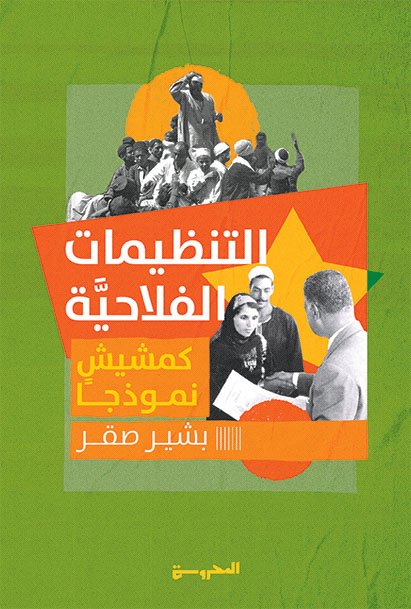
التنظيمات الفلاحية: كمشيش نموذجا (al-Tanẓīmāt al-fallāḥiyya: Kamshīsh namūdhajan)
By بشير صقر (Bashīr Ṣaqr)Published by مركز المحروسة (Markaz al-Maḥrūsa)
يتحدَّث عن قضية من أهم قضايا العمل النقابي والسياسي بمصر، وهي قضية التنظيم وما يتعلَّق منها بالنِّضال الفلَّاحي، ويسعى للتعريف بها على ضوء الأدبيات السياسية والخبرة العَمليَّة. ويتناول عددًا من القواعد والمبادئ الواجب مُراعاتها في تشكيل تلك التنظيمات (نقابية وسياسية)، والتي يَلزَم أن تتناسَب مع الأوضاع الاجتماعية والسياسية والثقافية في بلادنا، ويناقش كيفية تطبيق بعضٍ منها. كذلك يتعرَّض لمثالٍ عَمَليٍّ يتعلَّق بقرية كمشيش بالمنوفية، وكيف تمَّ تطبيق تلك القواعد في خمسينات القرن الماضي، وفي ثمانيناته بعد عودة قادتها إليها في أعقاب عملية نفي (حظر إقامة) بالمنوفية، جَرَت عام 1971، واستمرَّت 4 سنوات في محافظات الصعيد وغيرها. وأسهمت -مع عوامل أخرى- في انفراط عِقد هؤلاء القادة، وعرقَلَت نشاطهم، وأوقَفَت تَصاعُد كفاحهم الذي بدؤوه قبل نفيهم بربع قرن. كذلك يتناول دور هؤلاء القادة في كفاحهم السياسي، مُستَنِدين على ساقٍ واحدة هي النشاط الجماهيري، ومتجاهلين السَّاق الأخرى، وهي التنظيم؛ ممَّا ساهَم في تقليص عائد ذلك الكفاح، وأسهم -من زاويةٍ أخرى- في إضعاف قُدرَتِهم على حماية أبرز قادَتِهم: الشهيد صلاح حسين.
In stock
- Books are despatched the same or next working day
- You can cancel your order until 14 days after delivery of the goods
- No shipping costs to Netherlands from € 30.00
| Year of publication | 2023 |
| Number of pages | 374 |
| Language | Arabic |
| ISBN/EAN | 9789773139469 |